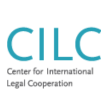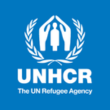Știri sociale
- Detalii
The conference “The Young Generation of the Danube Area as a Key to the European Integration”

The conference “The Young Generation of the Danube Area as a Key to the European Integration” will be held in Budapest, Hungary from June 17 – 19, 2011 at the Andrássy University Budapest.
The Young Citizens Danube Network (YCDN) was founded in July 2010 as part of the European Union Strategy for Danube Region (EUSDR) with the aim of bringing young people together to exchange experience and ideas and to give them opportunity to participate in shaping the region’s and their own future. The three day conference is expected to gather approximately 50 young Danubians who will be given the possibility to partake in interdisciplinary workshops and discuss challenges of the Danube region. The Republic of Moldova will be represented by Ms ELena MOISEI who will participate in the workshop C “Building prosperity in the Danube region: How did the countries react to the financial crisis and what impacts does this have on their future?”
The Conference aims to provoke a dialogue among young people coming from all 14 countries of the Danube region: 8 EU countries - Germany, Austria, Hungary, Czech Republic, Slovak Republic, Slovenia, Bulgaria and Romania and 6 non-EU countries - Croatia, Serbia, Bosnia and Herzegovina, Montenegro, Ukraine and Moldova). Through dialogue YCDN wants to enable young generation to successfully learn from each other and share and expand their views of the regional cooperation and youth. The Young Citizens Danube Network is hoping to use the June conference to establish a successful and lasting youth network.
Conference workshops
The workshop titles respect the main pillars, which define the priority areas of the „European Union Strategy on Danube Region“ „EUSDR“: „Connecting the Danube Region“, „Protecting the Environment in the Danube Region“, „Building Prosperity in the Danube Region“, „Strengthening the Danube Region“. As YCDN wants to contribute to the common challenges within the region, we decided to engage as well in those priority areas.
At the conference we will have the next 4 issues:
1. National identity, myths and feeling: Breaking the stereotypes
This workshop is about how each of us perceives his or her national identity, and more specifically, how we identify others. Although we may know at most only a handful of people from Germany, Serbia or the Czech Republic, we have an image of the German, Montenegrin or Czech national character. There are certain temperamental attributes as being “typical” for certain nations, such as the German reputation for being meticulous, the Montenegrin reputation for laziness or the image of Czech as beer drinkers. We take these characteristics for granted although they may have little to do with the reality. Still, despite we know that such categorizations are stereotypes and generalizations; at the same time it cannot be denied that there are significant differences between Romanians and Austrians. Therefore, the aim of this workshop is to deconstruct stereotypes and myths surrounding various national identities and to question their truthfulness.
2. Protecting the environment in the Danube region: Sustainable Development, biodiversity, quality of air and water
This workshop will be focused on environmental issues in catchment area of the Danube River. As environmental protection is mentioned in second pillar of European Danube Strategy, we will also stress the importance of this subject at the YCDN Conference. Namely in the future the member countries will have to find a compromise between progress in economy and sustainable development as natural resources are limited everywhere. Creating a cross-border Danube corridor with substantial naval traffic will strengthen international ties but without considering the fragile natural environment this will not bring durable regional development. The conservation of protected or “not yet protected” floodplains and wetlands along Danube River and its tributaries should become one of the priority subjects in EU policy.
3. Building prosperity in the Danube region: How did the countries react to the financial crisis and what impacts does this have on their future?
This workshop will concentrate on the current economic crisis, the impact it had on the countries of the Danube region and different measures that the countries have taken in the crisis management. As virtually all the countries of the Danube region were badly hit by the financial crisis, this is one of the most important aspects that need to be discussed in order to assess the impact it has on the future of the people from the region and also to critically examine the measures that were taken to improve the economic situation.
The cause of the East European financial crisis, including a good part of the countries from the Danube region, was a standard credit boom-and-bust cycle. East European countries attracted large international capital flows, owing to lose global monetary policy and accommodating business conditions. In the end, short-term bank lending became excessive and was used to finance a splurge on real-estate investment and consumption, while inflation took hold.
Three years after the effects of the economic crisis were first felt in this part of Europe, it is important that the progress in the crisis management is assessed and future recommendations are given for the economic development of the countries of the Danube region.
4. Strengthening the Danube region: How to counteract Human trafficking in the Danube region?
This workshop will focus on the security issues pertaining to trafficking in human beings, a modern-day form of slavery. With recent reports detecting series of region’s states to be both destination and origin countries of a very high number of trafficked people, demand for a stronger regional cooperation to tackle the issues in on the increase.
Since Danube Strategy clearly stats that making the Danube Region a safe and secure place to live is a top priority and vital for growth and prosperity, it is of outmost importance for Danube Youth to bring the case of thousands of trafficked humans from the region into the focus of the “strengthening the region” discussion. The prospects of strengthening the regional security cooperation to fight organized crime more efficiently are still inadequately explored and further push for a stronger cooperation and institutional capacity build up is needed if we want to see a safe and prosperous Danube Region.
FOR ADITIONAL INFORMATION ON WORKSHOPS, INCLUDING SUGGESTED PAPER TOPICS, PLEASE VISIT OUR WEBSITE
Facebook: youngdanubians
Contact in Moldova: ELena MOISEI elena.moisei@erai.org
Top organizatii
2025 CIVIC DIGITAL SOLUTIONS
Email: support@portal.civic.md










